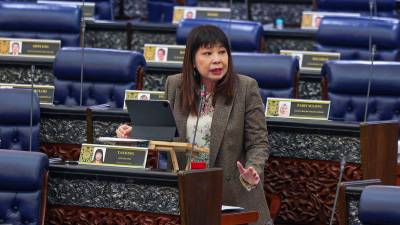KUALA LUMPUR: The government has never and will not impose any service tax on scholarships, educational loans and fee exemptions received by Malaysian citizens, said Deputy Finance Minister Lim Hui Ying.
In a statement today, Lim emphasised that all scholarships, education loans and fee exemptions, whether at universities, colleges, private schools or international schools, are not included in the scope of service tax.
She said that starting July 1, 2025, the scope of service tax in the education sector will be very limited, only involving private primary and secondary schools, only for fees exceeding RM60,000 per student per year, and higher education only for non-Malaysian students.
“This means that the vast majority of families and students will not be affected at all. For example, out of 569 private schools registered with the Ministry of Education nationwide, only 27 schools charging fees exceeding RM60,000 per year will be affected by this tax.
“This step is the government’s targeted approach to expand the tax base, while ensuring educational opportunities for Malaysians remain secure, without burdening parents and students,“ she said.
The statement by Lim, who is also the Tanjung member of parliament, was made following a statement by MCA deputy president Datuk Mah Hang Soon on the party’s Instagram regarding the implementation of service tax in the education sector.
In the post, Mah questioned the decision of the Royal Malaysian Customs Department to impose sales and service tax (SST) of six per cent on scholarships, sponsorships and fee exemptions at private and international educational institutions, which he described as unfair and unjust.
In this regard, Lim urged the public not to be misled by false statements and to only seek verification through the official channels of the Ministry of Finance or the Royal Malaysian Customs Department if there are any doubts.
“As Deputy Minister of Finance, I always adhere to the principle of ‘people first’, ensuring that every policy implemented prioritises the well-being of the people,“ she added. – Bernama
